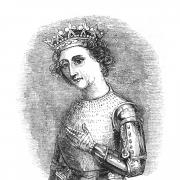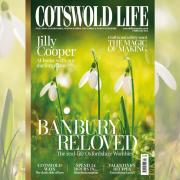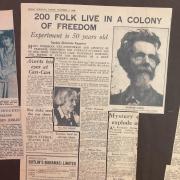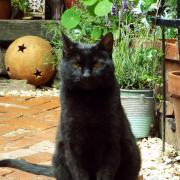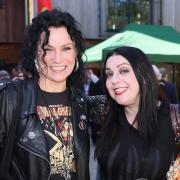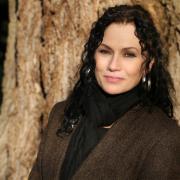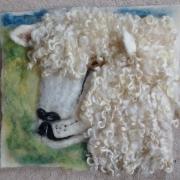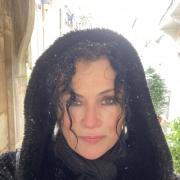Adventures with Hereward Corbett of the Yellow-Lighted Bookshops
It will come as no surprise that I, and I assume most, booksellers have fairly significant piles of what are called TBR books – to be read.
I generally have two or three TBR piles: one at work and two at home. They can be up to maybe a metre high, and are an eclectic mix of publisher proofs (early versions of books that have not yet been published), damaged items that I can’t bear to dispose of, new books that I have got excited about when I unpacked them, and old classics, familiar friends that I have caught site of on the shelves and thought, ‘ooh, I must read that again’.
Top of the pile I am looking at now, on the window sill of the sitting room at home, is a book called Customer Service Wolf, a present from an old friend, and a collection of cartoons about a wolf who works in a bookshop. I can’t imagine what made her think of me.
Moving down, we have A Spotter’s Guide to Countryside Mysteries, a guide to reading the landscape around us (dry stone walls, dew ponds, hedgerows, and so on, very much the sort of book I love). Sell Us the Rope is a brilliant novel set in the Bolshevik party conference in London in 1905, a book which sounds like it might be tough going, but the re-imagining of a young Stalin as love interest is inspired. An old and well thumbed edition of the Lonely Planet guide to the Highlands and Islands of Scotland is next, and represents endless wishful thinking about going on holiday, and Meg Rosoff’s transformational teen novel The Great Godden points in the same direction (the title a nod to Gatsby, but about a family on holiday in Cornwall).
I’m not sure that I will ever actually finish Kate Raworth’s Doughnut Economics, although I have started it any number of times over the last couple of years, but I do know that Milan Kundera’s Unbearable Lightness of Being, rediscovered a few weeks ago, will definitely get another reading shortly.
Why Karen Carpenter Matters is at least partly about the effect on the author of being named after Karen Carpenter, an intense autobiography that manages to be about much more than the subject herself, but after that there are a series of secondhand books, old Virago Classics, Noel Streatfeild and Constance Spry, all of which are more my partner’s tastes than mine, although Stella Gibbons’ Weather at Tregulla is rather tempting.
And finally, Body Work: The Radical Power of Personal Narrative, an eclectic and sometimes dense book about how the process of writing enabled the author to understand and challenge her own understanding of who she was, and what she could do.
As I sit, looking out at the rain in the garden, a blackbird sings, the wretched dog has dug another hole in the lawn, and I need to get to work. The TBR pile will wait a bit longer.
Follow Hereward on Twitter: @YLBookshop
BOOK REVIEWS

Ruth and Pen
by Emilie Pine
I once met Emile Pine and she was one of the most extraordinary and inspiring people I have ever spent any time with. Her first novel shows why. Two women, over the course of a single day, in the same city, but not known to each other, ask themselves the same questions about their lives and what they have done, and could yet do, to change them. I don’t often do unqualified enthusiasm, but this is a book that deserves it.
Penguin, £14.99

Berlin: Life and Loss in the City that Shaped the Century
by Sinclair Mackay
It had never occurred to me (but I am fairly dense), just how much of the last century – at least in the western world – was defined by what happened the German capital. Maybe the wars were obvious, but this book shows how so much more was the result of the people and ideas of Berlin. Mackay’s book holds a mirror to the city and sees the whole of the 20th century looking back.
Viking, £20




